Meenakshi Reddy Madhavan's Blog, page 86
September 11, 2017
What about your daughters: conversations with two mothers of little girls
(A version of this appeared as my F Word column ages ago.)
I got to thinking about what a difficult task raising a daughter in today's age of violence, rape and assault must be when I was reading a news item the other day. I forget what it was about, probably one of the many sorry stories that filter in from across our country—little girl raped, abused, left for dead. It made me wonder how you raised a strong, empowered woman and still had to tell her to be careful and mind her step so that she would eventually learn to survive.
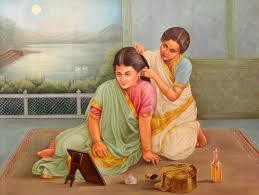

When I was just four, my mother sent me out to buy groceries by myself. She said she waited by the gate, heart in her throat, till I returned. I remember none of this—so much for an early lesson in feminism. Here's what I do remember from my childhood: running about like a hoyden in the dead heat of the afternoon, riding my cycle through neighbourhoods at least three main roads removed from mine, practically living in shorts and a t-shirt, and once, making a trip to a friend's house without telling my parents where I was going. That last one had consequences, I was only about three, and though my memories are faded, I do remember the house being in chaos when I returned, my parents ready to call the police. But for the most part, I had no Life Lessons to learn. There was a guy in a park once who touched me inappropriately as a child, but I knew it was inappropriate so I told my mother who chased him off. But when I turned thirteen, suddenly this free magical kingdom I lived in, became a place full of threats and danger. I had fetters around my ankles where before I had none, I had to account for my whereabouts and men grew from vague looming adult people who I ignored to a gender I had to be vigilant about.
I wondered if this would sit well with the generation being raised today to be the adults of tomorrow. I made a few phone calls to friends with daughters in Delhi and Bombay and asked them what they did differently, or what they did at all. My friends' daughters are all still very young, not old enough to run around unsupervised, but one of them mentioned the “good touch, bad touch” Komal video on child sexual abuse that Childline India had brought out. “Now she's freaked out by it,” said my friend who I will call Ingrid, “But I have told her that no one can touch her under her bathing suit area, and she can't touch anyone on their bathing suit area either.” She admitted to a sense of discomfort around men touching her child, even if they were known and trusted members of the family. Ingrid and her husband raise their daughter to not talk to strangers, even if that means she's a reserved child. “She's still very young,” said Ingrid of her daughter, “But I'm going to have the good touch-bad touch conversation again before she goes to school.”
That's one thing that has changed. I can't remember my mother ever sitting me down and telling me any of this. We had a frank and open discussion about where babies come from when I was about eight, but none of it had to deal with people touching children. Perhaps it was just not such a big deal in the 1980s, perhaps it wasn't commonly spoken of so people thought they didn't have to bring it up with their children. Not surprisingly, a lot of reflection about those days from women who are now in their 30s, like me, are to do with being fondled by an older man in the household. Either an uncle or a cousin or a trusted family domestic help.
My other friend, I'll call her Yasmin, said that her children (a boy and a girl, both older than Ingrid's daughter) were physically affectionate with people they met. “I don't want them to stop trusting,” she said, but she does make sure that any family they go to spend the day at doesn't have any male domestic help, and she doesn't employ men in her household either. “I try and not make it a gendered thing,” she told me, “I don't want her to feel more vulnerable than she has to. So I tell both my kids that because they're small, anyone could kidnap them and take them away.”
Apart from the dangers, I also wanted to talk about raising feminist daughters. Do today's girls really believe like the world is their oyster and they can do anything? That was the big lesson in my day, which the parents had to keep reinforcing. But has the lesson become so obvious that it no longer needs to be said? “Yes,” says Yasmin, pointing out also that her daughter has a penchant for creativity and crafts, while her son loves science. “I don't want to force her to love science, I want her to just be who she is.” On the other hand, “No,” says Ingrid, who recently stopped her full time job to work from home instead. “Mothers who work get punished. If you work, you'll never be asked to network with the other mothers. And everyone else just does something leisurely at home—they're “jewellery designers” or “interior decorators.”” Other friends have told me at different times that there's a sort of judgement against the working mother and definitely several missed socialising opportunities.
Another thing was clothes. Now I don't remember clothes shopping at all—does any kid? But my wardrobe was sensible—shorts or jeans and myriad t-shirts. I had frocks for birthday parties, which I liked for the lace and the frills, but were never very practical to run around in or inadvertently spill food on. Both Ingrid and Yasmin have active little girls, and therefore have to do most of their shopping in the gendered “boys” section. “Even the girls' shoes have some kind of pink fabric on it!” mourns Ingrid. Yasmin's daughter's school has a very fun system where you take the stairs up a floor and then have the option of sliding down on a cement slide built for the purpose. However, it's hard on clothes, especially little girl clothes which are made of delicate and fragile material. “I put her in boy's shorts,” says Yasmin. Does she object, I ask. “Not at all, in fact, she asks for them.”
Finally, I wonder what feminist lessons they're teaching their children, if any. “I would say be ambitious,” says Ingrid, “Ambition is so much better than competition.” Yasmin wonders about her son, raised as a feminist boy. “Sometimes I feel that in my quest to be feminist, I'm being a little unfair to him. I have to remind myself of that.”

I got to thinking about what a difficult task raising a daughter in today's age of violence, rape and assault must be when I was reading a news item the other day. I forget what it was about, probably one of the many sorry stories that filter in from across our country—little girl raped, abused, left for dead. It made me wonder how you raised a strong, empowered woman and still had to tell her to be careful and mind her step so that she would eventually learn to survive.


When I was just four, my mother sent me out to buy groceries by myself. She said she waited by the gate, heart in her throat, till I returned. I remember none of this—so much for an early lesson in feminism. Here's what I do remember from my childhood: running about like a hoyden in the dead heat of the afternoon, riding my cycle through neighbourhoods at least three main roads removed from mine, practically living in shorts and a t-shirt, and once, making a trip to a friend's house without telling my parents where I was going. That last one had consequences, I was only about three, and though my memories are faded, I do remember the house being in chaos when I returned, my parents ready to call the police. But for the most part, I had no Life Lessons to learn. There was a guy in a park once who touched me inappropriately as a child, but I knew it was inappropriate so I told my mother who chased him off. But when I turned thirteen, suddenly this free magical kingdom I lived in, became a place full of threats and danger. I had fetters around my ankles where before I had none, I had to account for my whereabouts and men grew from vague looming adult people who I ignored to a gender I had to be vigilant about.
I wondered if this would sit well with the generation being raised today to be the adults of tomorrow. I made a few phone calls to friends with daughters in Delhi and Bombay and asked them what they did differently, or what they did at all. My friends' daughters are all still very young, not old enough to run around unsupervised, but one of them mentioned the “good touch, bad touch” Komal video on child sexual abuse that Childline India had brought out. “Now she's freaked out by it,” said my friend who I will call Ingrid, “But I have told her that no one can touch her under her bathing suit area, and she can't touch anyone on their bathing suit area either.” She admitted to a sense of discomfort around men touching her child, even if they were known and trusted members of the family. Ingrid and her husband raise their daughter to not talk to strangers, even if that means she's a reserved child. “She's still very young,” said Ingrid of her daughter, “But I'm going to have the good touch-bad touch conversation again before she goes to school.”
That's one thing that has changed. I can't remember my mother ever sitting me down and telling me any of this. We had a frank and open discussion about where babies come from when I was about eight, but none of it had to deal with people touching children. Perhaps it was just not such a big deal in the 1980s, perhaps it wasn't commonly spoken of so people thought they didn't have to bring it up with their children. Not surprisingly, a lot of reflection about those days from women who are now in their 30s, like me, are to do with being fondled by an older man in the household. Either an uncle or a cousin or a trusted family domestic help.
My other friend, I'll call her Yasmin, said that her children (a boy and a girl, both older than Ingrid's daughter) were physically affectionate with people they met. “I don't want them to stop trusting,” she said, but she does make sure that any family they go to spend the day at doesn't have any male domestic help, and she doesn't employ men in her household either. “I try and not make it a gendered thing,” she told me, “I don't want her to feel more vulnerable than she has to. So I tell both my kids that because they're small, anyone could kidnap them and take them away.”

Apart from the dangers, I also wanted to talk about raising feminist daughters. Do today's girls really believe like the world is their oyster and they can do anything? That was the big lesson in my day, which the parents had to keep reinforcing. But has the lesson become so obvious that it no longer needs to be said? “Yes,” says Yasmin, pointing out also that her daughter has a penchant for creativity and crafts, while her son loves science. “I don't want to force her to love science, I want her to just be who she is.” On the other hand, “No,” says Ingrid, who recently stopped her full time job to work from home instead. “Mothers who work get punished. If you work, you'll never be asked to network with the other mothers. And everyone else just does something leisurely at home—they're “jewellery designers” or “interior decorators.”” Other friends have told me at different times that there's a sort of judgement against the working mother and definitely several missed socialising opportunities.
Another thing was clothes. Now I don't remember clothes shopping at all—does any kid? But my wardrobe was sensible—shorts or jeans and myriad t-shirts. I had frocks for birthday parties, which I liked for the lace and the frills, but were never very practical to run around in or inadvertently spill food on. Both Ingrid and Yasmin have active little girls, and therefore have to do most of their shopping in the gendered “boys” section. “Even the girls' shoes have some kind of pink fabric on it!” mourns Ingrid. Yasmin's daughter's school has a very fun system where you take the stairs up a floor and then have the option of sliding down on a cement slide built for the purpose. However, it's hard on clothes, especially little girl clothes which are made of delicate and fragile material. “I put her in boy's shorts,” says Yasmin. Does she object, I ask. “Not at all, in fact, she asks for them.”
Finally, I wonder what feminist lessons they're teaching their children, if any. “I would say be ambitious,” says Ingrid, “Ambition is so much better than competition.” Yasmin wonders about her son, raised as a feminist boy. “Sometimes I feel that in my quest to be feminist, I'm being a little unfair to him. I have to remind myself of that.”

Published on September 11, 2017 20:31
September 10, 2017
Today in Photo
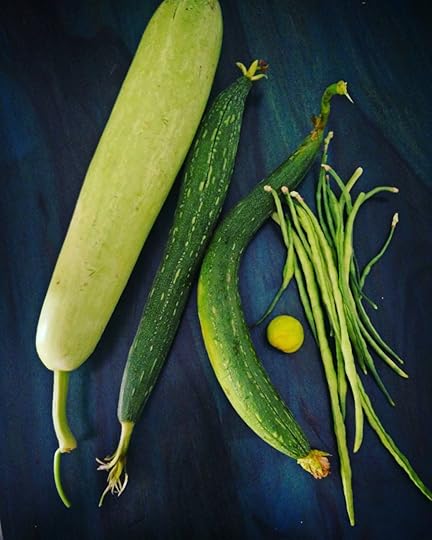
Growing faster than we can eat them! Here's our lauki hang with tori spelling (#sorrynotsorry) some more runner beans and the first lime to come off the tree. #terracegarden #eatwhatyougrow #delhidiary
via Instagram

Published on September 10, 2017 22:49
This is what they don't tell you about your thirties
(An edited version of this appeared in Arre a few months ago.)
I grow old.. I grow old..I shall wear the bottom of my trousers rolled.Shall I part my hair behind? Do I dare to eat a peach?I shall wear white flannel trousers, and walk upon the beach.I have heard mermaids singing, each to each. I do not think that they will sing to me.
- T.S Eliot, The Love Song Of Alfred J Prufrock
My thirtieth birthday was a landmark one by all accounts. I had just found love two months ago, and I was glowing with it. I was ready to end a decade that had been painful and trying and too full of waiting and not full enough of things done. I was ready to be done with twenty something, and all that implies: struggling, searching, self-conscious.
It was a Mad Men theme party on a friend's terrace. Another friend brought his DJ skills, everyone was exhorted to dress the part. The friends who lent me their space strung up lanterns and put up little angheetis full of coal to drive away the December chill. I had a special dress made at the tailor's, a yellow silk a-line number, and my hair was bouffant-y. I don't remember much of the party except for flashes of details: a birthday cake in the shape of a book; how everyone dressed the part and we looked like glorious, historic ghosts gathered on a Nizamuddin terrace; clutching a bottle of wine to my bosom, taking swigs of it all night. I was so ridiculously drunk, we stumbled the few blocks home, after the neighbours had called several times complaining about the noise, after the last few stragglers were persuaded to leave as well.
It was the last time I'd be that drunk without being hungover for two straight days after. It was one of the last times I'd have the energy to be out all day and also party all night. It was, if I had known it, the last time I'd be so damn the consequencesabout anything. My twenties were over and my thirties had begun.


At my age, my parents were parents. At my age, my grandmother already had practically grown-up children. The great advantage of being millennial, or millennial-adjacent anyway, is that you don't have to make the same choices your parents do. Consequently, mine—and my friends—thirties are spent in dream building: new jobs that bring more money, travel with those jobs, starting up things of their own. A few have succumbed to biological clocks and are having children, but if I put my parent and non-parent friends in a row next to each other, the childfree ones outnumber the ones with kids. Just about.
Perhaps this is why I—a person who frequently saw the grubby dawn of Mumbai mornings after a night out—had nothing on my calendar for the past weekend except two baby showers. We're growing up, us eighties kids, and we're growing older, if not old, and no one talks about it in the frantic soul searching way we did in our twenties.
Here's what it's like to be thirty five, from my point of view. No kids, but a flat that we run with admirable orderliness, which surprises guests who have not seen me for a decade. I have dust cloths and kitchen counter wipers, a fully stocked fridge and a pretty decent bar. Places that I used to love are dismissed as “too loud,” and though “too expensive” is still an issue for me (blame the freelance author life), it no longer seems to be for many of my peer group. For they are editors and managers and heads of things, a lot of them have savings and fixed deposits, something they seemed to have automatically done as soon as they entered this new decade. Instead of parties, we talk about healthy eating, instead of doing tequila shots, we do juice detoxes.
On this side of thirty, I am still living like a twenty something, still smoking a little, still not exercising enough, still eating junk food from time to time, but my body is beginning to soften and ripen. At a recent gynaecological exam, I discovered that I had three cricket ball sized fibroids in the muscle of my uterus, and the doctor took one look at my womb and asked me when I was going to have children. “I'm still making up my mind,” I said and she looked grim. “You don't have much time.”
That seems to be the motto: you don't have much time. I am closer to fifty than fifteen, and yet, thanks to this generation of mine, I persist in thinking that the world is my oyster and everything will happen eventually. Retirement funds? Pfft, it'll happen. But miss my eight hours of sleep and I'm a zombie for the rest of the day. I've learned to take mid-morning flights, and not drink coffee after seven pm. I drink a lot more water now than I used to, and in my bank account, the buffer by which I start to worry is higher than it ever has been before.
So, what should you know about growing older, dear twenty something reading this? Your metabolism slows down, for one, and you have to either watch portion sizes or do a lot more exercise to ensure you stay the same weight as before. You always feel a bit like a fraud in the grown up room, wondering if anyone can tell you haven't figured your shit out yet. You're a lot more patient with your parents. You have much more self confidence than before, because you've winnowed out the stuff that doesn't matter. You have fewer friends, and you see them less, but you enjoy your time together more. You are Aunty or Uncle to several little ones and you're surprised by how easy it is to love children of the people you love, even though you claimed you were a child hater in your time. You're still a little scared that you won't do the things you set out to do, but now your fear is marked by a ticking clock.
You mellow.

I grow old.. I grow old..I shall wear the bottom of my trousers rolled.Shall I part my hair behind? Do I dare to eat a peach?I shall wear white flannel trousers, and walk upon the beach.I have heard mermaids singing, each to each. I do not think that they will sing to me.
- T.S Eliot, The Love Song Of Alfred J Prufrock
My thirtieth birthday was a landmark one by all accounts. I had just found love two months ago, and I was glowing with it. I was ready to end a decade that had been painful and trying and too full of waiting and not full enough of things done. I was ready to be done with twenty something, and all that implies: struggling, searching, self-conscious.
It was a Mad Men theme party on a friend's terrace. Another friend brought his DJ skills, everyone was exhorted to dress the part. The friends who lent me their space strung up lanterns and put up little angheetis full of coal to drive away the December chill. I had a special dress made at the tailor's, a yellow silk a-line number, and my hair was bouffant-y. I don't remember much of the party except for flashes of details: a birthday cake in the shape of a book; how everyone dressed the part and we looked like glorious, historic ghosts gathered on a Nizamuddin terrace; clutching a bottle of wine to my bosom, taking swigs of it all night. I was so ridiculously drunk, we stumbled the few blocks home, after the neighbours had called several times complaining about the noise, after the last few stragglers were persuaded to leave as well.
It was the last time I'd be that drunk without being hungover for two straight days after. It was one of the last times I'd have the energy to be out all day and also party all night. It was, if I had known it, the last time I'd be so damn the consequencesabout anything. My twenties were over and my thirties had begun.


At my age, my parents were parents. At my age, my grandmother already had practically grown-up children. The great advantage of being millennial, or millennial-adjacent anyway, is that you don't have to make the same choices your parents do. Consequently, mine—and my friends—thirties are spent in dream building: new jobs that bring more money, travel with those jobs, starting up things of their own. A few have succumbed to biological clocks and are having children, but if I put my parent and non-parent friends in a row next to each other, the childfree ones outnumber the ones with kids. Just about.
Perhaps this is why I—a person who frequently saw the grubby dawn of Mumbai mornings after a night out—had nothing on my calendar for the past weekend except two baby showers. We're growing up, us eighties kids, and we're growing older, if not old, and no one talks about it in the frantic soul searching way we did in our twenties.
Here's what it's like to be thirty five, from my point of view. No kids, but a flat that we run with admirable orderliness, which surprises guests who have not seen me for a decade. I have dust cloths and kitchen counter wipers, a fully stocked fridge and a pretty decent bar. Places that I used to love are dismissed as “too loud,” and though “too expensive” is still an issue for me (blame the freelance author life), it no longer seems to be for many of my peer group. For they are editors and managers and heads of things, a lot of them have savings and fixed deposits, something they seemed to have automatically done as soon as they entered this new decade. Instead of parties, we talk about healthy eating, instead of doing tequila shots, we do juice detoxes.
On this side of thirty, I am still living like a twenty something, still smoking a little, still not exercising enough, still eating junk food from time to time, but my body is beginning to soften and ripen. At a recent gynaecological exam, I discovered that I had three cricket ball sized fibroids in the muscle of my uterus, and the doctor took one look at my womb and asked me when I was going to have children. “I'm still making up my mind,” I said and she looked grim. “You don't have much time.”
That seems to be the motto: you don't have much time. I am closer to fifty than fifteen, and yet, thanks to this generation of mine, I persist in thinking that the world is my oyster and everything will happen eventually. Retirement funds? Pfft, it'll happen. But miss my eight hours of sleep and I'm a zombie for the rest of the day. I've learned to take mid-morning flights, and not drink coffee after seven pm. I drink a lot more water now than I used to, and in my bank account, the buffer by which I start to worry is higher than it ever has been before.
So, what should you know about growing older, dear twenty something reading this? Your metabolism slows down, for one, and you have to either watch portion sizes or do a lot more exercise to ensure you stay the same weight as before. You always feel a bit like a fraud in the grown up room, wondering if anyone can tell you haven't figured your shit out yet. You're a lot more patient with your parents. You have much more self confidence than before, because you've winnowed out the stuff that doesn't matter. You have fewer friends, and you see them less, but you enjoy your time together more. You are Aunty or Uncle to several little ones and you're surprised by how easy it is to love children of the people you love, even though you claimed you were a child hater in your time. You're still a little scared that you won't do the things you set out to do, but now your fear is marked by a ticking clock.
You mellow.

Published on September 10, 2017 20:40
Today in Photo

Wobbly legged after my latest experiment with fitness. As you all know: I hate exercise. Any form of it. I don't like being tired and sweaty and frankly, lack the motivation to get up off my ass and work it. As you also know: I'm getting to the age where you can't just depend on metabolism and good genes to keep you in the shape to which you are accustomed. Walking is the least painful of all exercise forms for me and I'm combining it with watching television, which is a nice distraction. And because I hate commitment, this is a rented machine, mine for the month which means it'll never turn into a clothes horse like at home treadmills always do. I'm watching The Mindy Project here by the way and it's mindless TV that's going to get me through this month. #forcedtobefit #stupidsocietalstandardsforhealthandbeauty #yogaisboring
via Instagram

Published on September 10, 2017 07:13
September 9, 2017
Today in Photo
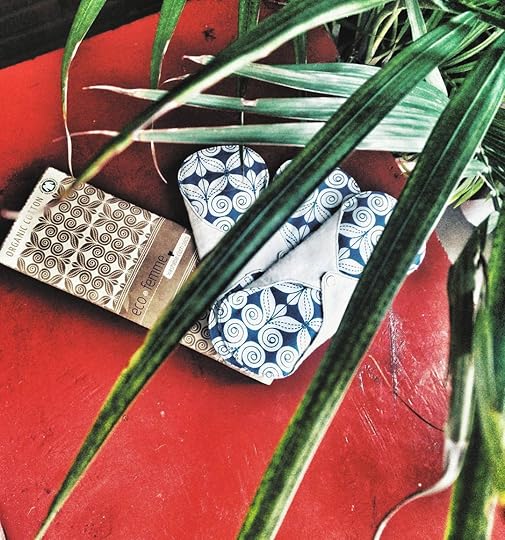
Continuing my crunchy hippy ways of Making Menstruation Cool Again. Just got these pretty cloth panty liners, because I used regular panty liners with my menstrual cup last month and was shocked to see how much waste there was. BUT I kinda loved the liners, especially overnight and on light days. These reusable ones from Eco Femme are soft, light and easy to store when they're dirty too. Plus they can be machine washed. I only got three so will have to hand wash but if I like them, planning to get another set so I can be super lazy about the whole process. Waste management is so trendy now, you guys, everyone should try it. One little change and you can feel super smug. #delhidiary #prettifyingtheperiod #thinkgreen
via Instagram

Published on September 09, 2017 00:22
September 7, 2017
Tsundoku: Faujis, The Iranian Elections and Mysterious Benefactors
(The first of the book recommendation columns I started doing for Hindu BLink back in May.)
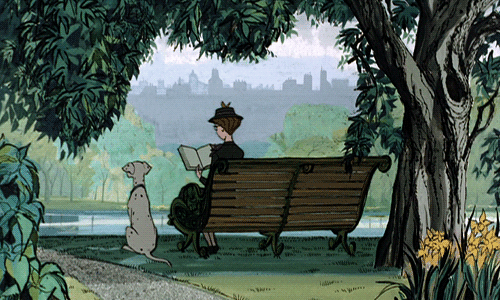
Is your TBR pile multiplying overnight? Are you faced with dusty reproachful spines? Do you wonder when you're ever going to catch up with the most prolific bookstagrammers and shoot pretty pictures of a cover, some flowers and a hardwood table? Or perhaps you're overwhelmed by how many new books there are and how you'll never have time to read them all. Help is on hand. Welcome to Tsundoku, a weekly books recommendation column, where I break down books into the three parts that really matter: what everyone's talking about, what's happening in the world, and what old book you should read (or re-read) next. (“Tsundoku” a word borrowed from Japan means basically buying new books only to leave them in a pile next to the other books you bought and haven't gotten around to reading.)
Water Cooler: Anuja Chauhan's books are always fun, because she takes commercial fiction and wraps it up in a big Bollywood style extravaganza. Each of her books are pacey, full of action and the kind of dialogues you might use amongst yourselves—liberal lashings of Hinglish and long odes to men's bottoms. Her latest, Baaz,just came out to the delighted squeals of women aged anywhere from 19 to 40. Each of Chauhan's books have a main central theme: her first The Zoya Factorwas about cricket, followed by books about politics, Delhi in the '70s and Doordarshan, and family disputes over property. Baazis the Air Force book, peppered with fauji language and in an interesting departure for Chauhan—deals more with the India-Pakistan war in the '70s than the romance. Which is not to say the romance isn't heady and exciting, but Baazmarks Chauhan as a skilled writer of action as well as relationships, as well as being the first time she writes a male protagonist, the dashing Ishaan Faujdaar, nicknamed Baaz. Ishaan is a small-town boy turned sophisticated army officer, with “kota grey” eyes and a sense of chivalry and patriotism that bowls over photographer Tehmina Dadyseth, herself an army daughter, who has many reasons to hate all that life represents. Read for the loving descriptions of army life in India, and touching bromances, but perhaps ignore the superhero ending. Baaz byAnuja Chauhan, Harper Collins, Rs 399
Watchlist: The first Iran elections since the nuclear agreement of 2015 happened this week, with voting underway as I write this. A great way to understand Tehran and the people who live there is by reading Ramita Navai's award winning book of essays City Of Lies: Love, Sex, Death And The Search For Truth In Tehran.All the eight essays are about controversial people in the current regime—a sex worker, a trans woman, a thug, just to give a few examples, and are spun out of several interviews Navai did while she was living in Tehran as a journalist. Written almost as short stories, Navai goes deep into the psyche of each subject—what was their family life like? What did they eat or drink? What did they wear?---and makes you feel as though you've travelled to the city itself and spoken to the people. My particular favourite was the essay about Someyeh, a traditional religious girl who marries her dashing first cousin, only to realise that marriage is not all it's cracked up to be. Bonus: you'll be reminded very much of India as you read, especially the descriptions of the traffic and the heavy pollution. City Of Lies: Love, Sex, Death And The SearchFor Truth In Tehran byRamita Navai, Hachette, Rs 399.
Way back: If you're looking for something light after all that heavy, consider the cupcake of a book that is Daddy-Long-Legsby Jean Webster. An epistolary novel, with little illustrations, it's sweet, funny and (well deservedly) a classic. Published in 1912, the book is letters from orphan Jerusha “Judy” Abbott to a mysterious benefactor she calls Daddy-Long-Legs, as part of a deal he strikes up with her—he'll send her to college if she writes him a weekly letter telling him how she's faring. Along the way, Judy transforms from a little orphan girl to a popular college student and makes many friends, but also the mysterious “Daddy” changes from a detached anonymous trust fund, to someone who begins to support her through her four years in college. Premise sound familiar? The book was the inspiration for the 1984 Malayalam movie Kanamarayathu, which then had a Hindi remake in 1986 called Anokha Rishta. Daddy-Long-Legs by Jean Webster, free online on Project Gutenberg, Scholastic(paperback), Rs 105.


Is your TBR pile multiplying overnight? Are you faced with dusty reproachful spines? Do you wonder when you're ever going to catch up with the most prolific bookstagrammers and shoot pretty pictures of a cover, some flowers and a hardwood table? Or perhaps you're overwhelmed by how many new books there are and how you'll never have time to read them all. Help is on hand. Welcome to Tsundoku, a weekly books recommendation column, where I break down books into the three parts that really matter: what everyone's talking about, what's happening in the world, and what old book you should read (or re-read) next. (“Tsundoku” a word borrowed from Japan means basically buying new books only to leave them in a pile next to the other books you bought and haven't gotten around to reading.)
Water Cooler: Anuja Chauhan's books are always fun, because she takes commercial fiction and wraps it up in a big Bollywood style extravaganza. Each of her books are pacey, full of action and the kind of dialogues you might use amongst yourselves—liberal lashings of Hinglish and long odes to men's bottoms. Her latest, Baaz,just came out to the delighted squeals of women aged anywhere from 19 to 40. Each of Chauhan's books have a main central theme: her first The Zoya Factorwas about cricket, followed by books about politics, Delhi in the '70s and Doordarshan, and family disputes over property. Baazis the Air Force book, peppered with fauji language and in an interesting departure for Chauhan—deals more with the India-Pakistan war in the '70s than the romance. Which is not to say the romance isn't heady and exciting, but Baazmarks Chauhan as a skilled writer of action as well as relationships, as well as being the first time she writes a male protagonist, the dashing Ishaan Faujdaar, nicknamed Baaz. Ishaan is a small-town boy turned sophisticated army officer, with “kota grey” eyes and a sense of chivalry and patriotism that bowls over photographer Tehmina Dadyseth, herself an army daughter, who has many reasons to hate all that life represents. Read for the loving descriptions of army life in India, and touching bromances, but perhaps ignore the superhero ending. Baaz byAnuja Chauhan, Harper Collins, Rs 399
Watchlist: The first Iran elections since the nuclear agreement of 2015 happened this week, with voting underway as I write this. A great way to understand Tehran and the people who live there is by reading Ramita Navai's award winning book of essays City Of Lies: Love, Sex, Death And The Search For Truth In Tehran.All the eight essays are about controversial people in the current regime—a sex worker, a trans woman, a thug, just to give a few examples, and are spun out of several interviews Navai did while she was living in Tehran as a journalist. Written almost as short stories, Navai goes deep into the psyche of each subject—what was their family life like? What did they eat or drink? What did they wear?---and makes you feel as though you've travelled to the city itself and spoken to the people. My particular favourite was the essay about Someyeh, a traditional religious girl who marries her dashing first cousin, only to realise that marriage is not all it's cracked up to be. Bonus: you'll be reminded very much of India as you read, especially the descriptions of the traffic and the heavy pollution. City Of Lies: Love, Sex, Death And The SearchFor Truth In Tehran byRamita Navai, Hachette, Rs 399.
Way back: If you're looking for something light after all that heavy, consider the cupcake of a book that is Daddy-Long-Legsby Jean Webster. An epistolary novel, with little illustrations, it's sweet, funny and (well deservedly) a classic. Published in 1912, the book is letters from orphan Jerusha “Judy” Abbott to a mysterious benefactor she calls Daddy-Long-Legs, as part of a deal he strikes up with her—he'll send her to college if she writes him a weekly letter telling him how she's faring. Along the way, Judy transforms from a little orphan girl to a popular college student and makes many friends, but also the mysterious “Daddy” changes from a detached anonymous trust fund, to someone who begins to support her through her four years in college. Premise sound familiar? The book was the inspiration for the 1984 Malayalam movie Kanamarayathu, which then had a Hindi remake in 1986 called Anokha Rishta. Daddy-Long-Legs by Jean Webster, free online on Project Gutenberg, Scholastic(paperback), Rs 105.

Published on September 07, 2017 04:44
September 5, 2017
Today in Photo

One of the only souvenirs we got back from our Europe trip was a vape. I wanted to go fully off smoking at home (still sticking to normal disgusting cigarettes when I'm out or drinking) before I told you all about it and since it's been about a week I think it's safe now. Today we've just changed the liquid inside for the first time since Amsterdam and are smoking coffee flavoured nicotine eliquid which is so fun and also so delicious. Enough nicotine in there (6 mg) so we're not missing cigarettes at home plus a slightly fancy machine so there's the whole drag and hitting the back of your throat experience. Recommend to anyone giving up smoking but do spend the money and get a higher end model because they're the only ones that will replicate a real cigarette. #vaping #delhidiary #wannabemillennials
via Instagram

Published on September 05, 2017 01:07
September 4, 2017
Today in Photo

Thoroughly enjoying this new book, historical fiction from India that has nothing to do with the Mughals or the British Raj. I knew nothing about the Chola empire before I began reading Empire by Devi Yesodharan but now with this sexy detailed narrative I feel like I'm fully immersed. I have to concentrate a bit while I'm reading because there's a lot of description of the war stuff which is not my strong suit, but it's so well researched I don't mind taking my time over it. #nowreading #bookstagram#150in2017 #mrmbookclub
via Instagram

Published on September 04, 2017 02:00
September 3, 2017
Today in Photo

Ahhh back to binge watching sitcoms, chilling on our lovely lovely bed and spending the whole day in my pug shorts and unattractive but so comfortable t shirt from a million years ago. Karims for dinner, and a little research work so I don't feel like the whole day was a bust. Sundays are bliss, even though all days are the same for Olga. #delhidiary
via Instagram

Published on September 03, 2017 08:20
September 2, 2017
Today in Photo
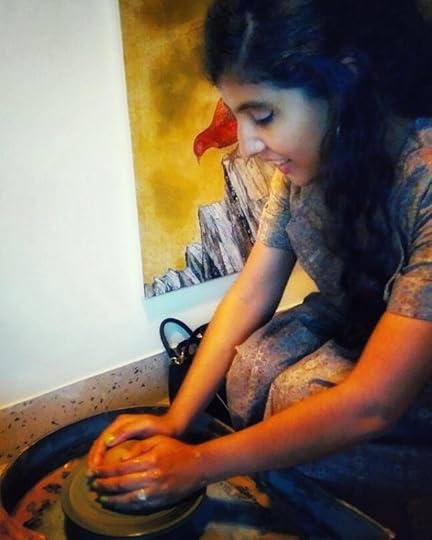
Highlight of my Saturday: making a pot at my little friend's third birthday party. And we got to take the pots home! I think all birthday parties should have potters and wheels. #delhidiary #pottering
via Instagram

Published on September 02, 2017 21:51



